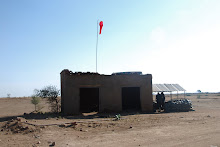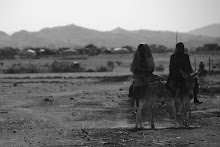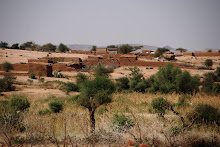I was a Peace Corps volunteer before joining the UN. In training, a few weeks into your stay in a new country, they make you do an exercise called “community mapping” to learn the two most essential skills of community intervention.
The trainers drive you out to a small village, assemble the villagers, give you a pen and paper and tell you to sketch out a map of the existing village structures and services and identify needs for new ones.
Half the battle is explaining to a group of unsuspecting villagers who you are and what it is you are doing standing in the dirt in front of them with a pen and paper. The rest of the battle is learning how to listen. Vast differences between you and them soon become apparent – perhaps you don’t know what a gari mill is, and they definitely have no idea how to conceive of a map. Somehow you have to meet in the middle.
The point of this story is that UNAMID needs to get better at 1) explaining what it is and why it is there, and 2) relaying messages back from the community about what their needs are. This two-way communication is supposed to happen on daily “confidence building patrols” which consist of a few cars of police and military personnel driving around camps and villages and stopping to talk to people. These patrols constitute the vast majority of UNAMID’s billion-dollar-a-year contact with its constituency - rural Darfuris affected by the conflict.
But very little has been invested in developing these essential skills in police and military and in the translators through which their interactions are channeled. Going along on patrol you can’t help but notice some camp residents give blank stares in response to questions – they don’t know why UNAMID people are there and what they expect to offer. Others say everything is fine, having long ago given up hope that anyone is actually listening to what they say..
If you can’t communicate, you’re just someone with a pen and paper in the dirt.
Saturday, December 27, 2008
Subscribe to:
Post Comments (Atom)













































No comments:
Post a Comment